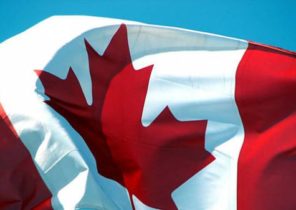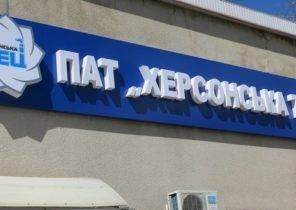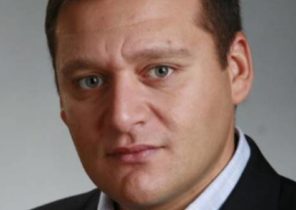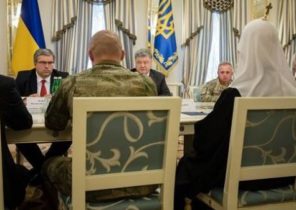
The Verkhovna Rada of Ukraine submitted a draft of new laws regulating language policy, “On state language” and “the functioning Of Ukrainian as the state language, and the use of other languages in Ukraine”. A group of deputies who developed these documents, proposes restrictions on the use of any languages other than Ukrainian in public sphere. The adoption of language laws in the past were accompanied by passionate debate and protests. They began and now: criticism of bills in the blogs already spoke both Russian and Ukrainian. However, linguists are not in a hurry to criticize those who advocate for the support of the state language of Ukraine.
New projects the language of the law, unlike their predecessors, largely based on the European experience. They include the introduction of operating in many countries of the European Union rules governing the scope of use of the state language. Ukrainian language as communicated to the Parliament the documents will control in the media, science, politics, law, military, office work, trade.
Besides Ukrainian, other languages, including Russian, are regarded these laws as a foreign, that is, the languages of the national minorities (with the exception of the languages of indigenous peoples: Crimean Tatars, Karaites, Krymchaks). Thus, according to the latest census, nearly 15% of ethnic Ukrainians indicated as native Russian language. If you follow the logic of new projects the language of the law, only Ukraine has 15.6 million members of national minorities, nearly 14 million of them Russian-speaking (not only ethnic Russians, but, for example, Belarussians or Moldavians who reported during the census of Russian as a native language).
To get the language right envisaged by the new legislation for national minorities (e.g. the right to education in the state language or the right to receive through mass media information in their native language, etc.), you will need to in the village not less than 30% of the residents signed a statement (in the case of large cities we can talk about the collection of signatures of hundreds of thousands of people). And even if we are talking about a small village, the use of non-state language, the Verkhovna Rada will adopt a separate law, considering each specific application. This process can take a long time, however, the law provides for a transitional period.
A new language law introduces quotas. For libraries — not more than 50% of the books in foreign languages. For broadcasting — no more than 10% of broadcasting time in foreign languages (national channels), no more than 20% (regional channels) and not more than 50% (public broadcasting). For cinema — not more than 10% of the films in a foreign language with subtitles. Audiovisual products are mainly to be duplicated on the Ukrainian language — to comply with the quotas.
Restrictions are provided for the publishers. The primary language of publications in Ukraine is the Ukrainian language and only 15% of the circulation can be published in a foreign language. If the publisher wants to publish a book, for example, in Russian, you will be obliged to publish the same book in the Ukrainian language, the latest edition should be higher.
The new rules apply and any public speaking in a foreign language: if at the meeting or in a television broadcast sounds of the Ukrainian language, you will need to provide simultaneous translation into the official language (currently live on Ukrainian and Russian TV channels in Ukraine, both languages are used without translation).
The previous and while the current law governing language policy was adopted relatively recently, in 2012. It provided for the possibility of using, in addition to the state of regional languages where more than 10% of the population consider Ukrainian their native. The law assumed that, in addition to the Russian language, additional language will receive the rights of Bulgarians, Hungarians, Crimean Tatars, Romanians, however, the representatives of these national communities were critical to the adoption of the document, noting that it insufficiently protects the rights of minorities.
After mass protests during the Euromaidan protests, the new government formed because of the flight out of the country, Viktor Yanukovych, refused to repeal the law in 2012, the so-called law of Kivalov-Kolesnichenko (named after the names of the members who developed it) — though up to that time, until adopted new.
With the President of the International Association of Ukrainists Michael Moser, Professor of Vienna University, author of a study on language policy and linguistic discourse in Ukraine in 2010-2012, we talk about how bad the current law and what should be close to the ideal language policy in Ukraine:
Radio Liberty: As you were doing language policy, when the President was Viktor Yanukovych, could you tell us what was different this era linguistically?
Michael Moser: First of all, it was an attempt to set a new language order, and on the basis of lies. It’s not just about the language law Kivalov-Kolesnichenko 2012, but the bill 2010, submitted for consideration to the first year of the reign of Yanukovych. Language laws were associated not only with Ukrainian, but also international context. This becomes clear when we notice that they are all based on the European Charter for regional or minority languages, which was signed, but not ratified, in particular Russia.
Representatives of the Russian Federation have repeatedly pointed out how important it is that Ukraine was acting in accordance with the provisions of this Charter. They insisted on principles that themselves are actually refused because without the ratification of Russia this document does not work. And in this connection an interesting fact that few people pays attention that in Russia live not only Russians live not only people whose native language — Russian. In other words, live in Russia, different minorities. Who makes the biggest minority? Is the Tatars. But in second place is Ukrainian. As the Russian Federation guarantees them the right? This is a question that is important.
But back to the presidency of Yanukovych. When the language law was to take effect, its promoters everywhere told the story that Europe is in awe of this bill because it supposedly guarantees linguistic rights in European grounds. In fact, European institutions had to assess the bill, not recommended to take it in the form in which we know it today. The law was enacted for illegitimate reasons, in violation of the rules. In addition, it was associated with various myths. Different people said then that Russian language in Ukraine is not protected. It was very unfortunate, because journalists and politicians who say such things should know that Russian language in Ukraine protects not only the European Charter for regional or minority languages, which operates without this law, the Russian language was defended on the basis of the first language law adopted in 1989. And that’s not all. Russian language in Ukraine is protected by the Constitution of Ukraine. So, of course, act 2012 for all these reasons, it is necessary to cancel.
— What are the reasons for the current language, the law does not recommended the adoption of European institutions that were responsible for its compliance with European standards?
— The reasons were different. This is not related to the General spirit of the law because some of its provisions are not bad. First of all, it was about the fact that this document may contributes to the development of the Russian language, but contributes little to the development of those languages that need to support minority languages of Ukraine. There is another very important point — and this was emphasized by representatives of the OSCE and the Venice Commission — the language law of 2012 is too little attention to the development of the state language. The development of minority languages should not impede the development of the state language. Let all the people in Ukraine speak your language: Russian, Hungarian, Crimean-Tatar, Romanian, Polish, Belarusian, let’s hope that more and more Yiddish. But the state language must know. And in Ukraine and in Russia. This does not mean that all speak exclusively in that language. This does not mean that different aspects of language life should only be serviced by the same language.
I am in Ukraine, and I honestly would rather observed the opposite, that in fact infringe on Ukrainian language. The position of the Russian language in Ukraine is very profitable if it is, for example, on the press, on television and radio. And I don’t fear for the future of the Russian language in Ukraine. I’ll be glad when the Ukrainian language will be presented, for example, on television, in the same measure as Russian. I will be very glad if the Ukrainian magazines will have the same circulation, which have Russian-language journals. We can only dream about.
— Now in the Verkhovna Rada of Ukraine passed to the consideration of new language laws, which provide for the restriction of that freedom, which exists today, — the introduction of quotas for the press, publishers or television and radio broadcasting in non-state language. In your opinion, would it be possible in the case of the adoption of these laws say the contrary, that the Ukrainian language will be in a better position compared to Russian or any other languages of national minorities?
I’m not so sure as you that the current language situation is the result of freedom. It is not only the liberty, and the remnants of the past, and some of the laws of the market. Regarding the new law, we should not forget that the limitations you mentioned, there are in different countries. There are other countries — not only Ukraine, there are other language contexts — not just Russian-Ukrainian, there are other countries with a certain linguistic laws. For Example, France. There are also quotas. France in General is a good example, because that’s where language legislation is quite unambiguous.
But there are, for example, Switzerland, where there are four official languages.
— If we are talking about Switzerland, this is a very interesting country, but it is fundamentally different from Ukraine or Russia. Switzerland, as the government works at different levels is completely different than Ukraine. Also very much like to bring the example of Canada and Belgium. But this is ridiculous!
Why?
Because the language situation in Belgium — it’s terrible. There are three official languages: German (spoken by about 1% of the Belgians), Flemish and Walloon. Because of the language situation around the last two languages, and this is just one of the factors that Belgium does not function as a state. And Canada is far from idyllic. The risk of Quebec separatism is constantly.
— I would like to return to the Ukrainian language, because the current situation — although with some reservations, which you mentioned, refers to the relative freedom for the media and publishing in the choice of the broadcast language or the language of publication of the book. In the proposed laws we are talking about quotas. You talked about the laws of the market, which act now. The need for television channels simultaneously translated into Ukrainian, even the Russian language, these laws do not take into account. It can be expensive.
I don’t remember a lot of Russian gear in which the Ukrainians speak their native language without translation. To come all the time that Ukrainians have to understand Russian language and that all Ukrainians understand Russian language, is, of course, understandable, but the situation is changing. And that’s fine. In different situations, the language the life of the state is changing. Prague was once a common German language. And the Czechoslovak government also pursued a language policy. This is normal. The fact that the government affects the publishing, media and so forth, is a phenomenon that is atypical only for Ukraine. I am confident that the Russian language will continue to live in Ukraine, which in Russian would say it. Most people I know don’t want in Ukraine was not Russian language, we like Russian language, we respect him and we will be glad, if this respect is mutual. And even if language legislation in Ukraine now goes in a certain direction, it is worth remembering that while a new law on national minorities, and all of these processes in legislation will occur in the European context.
— What, from your point of view must be close to the ideal language law, what rights it must take into account?
All language rights should be taken into account when talking about the informal sector. However, in today’s situation you need to focus on what Ukraine needs more than in the past, to work to ensure that all Ukrainians to know the state language. This is a principle which is not only typical for Ukraine. The official language in the state not impose. It is necessary to know.







